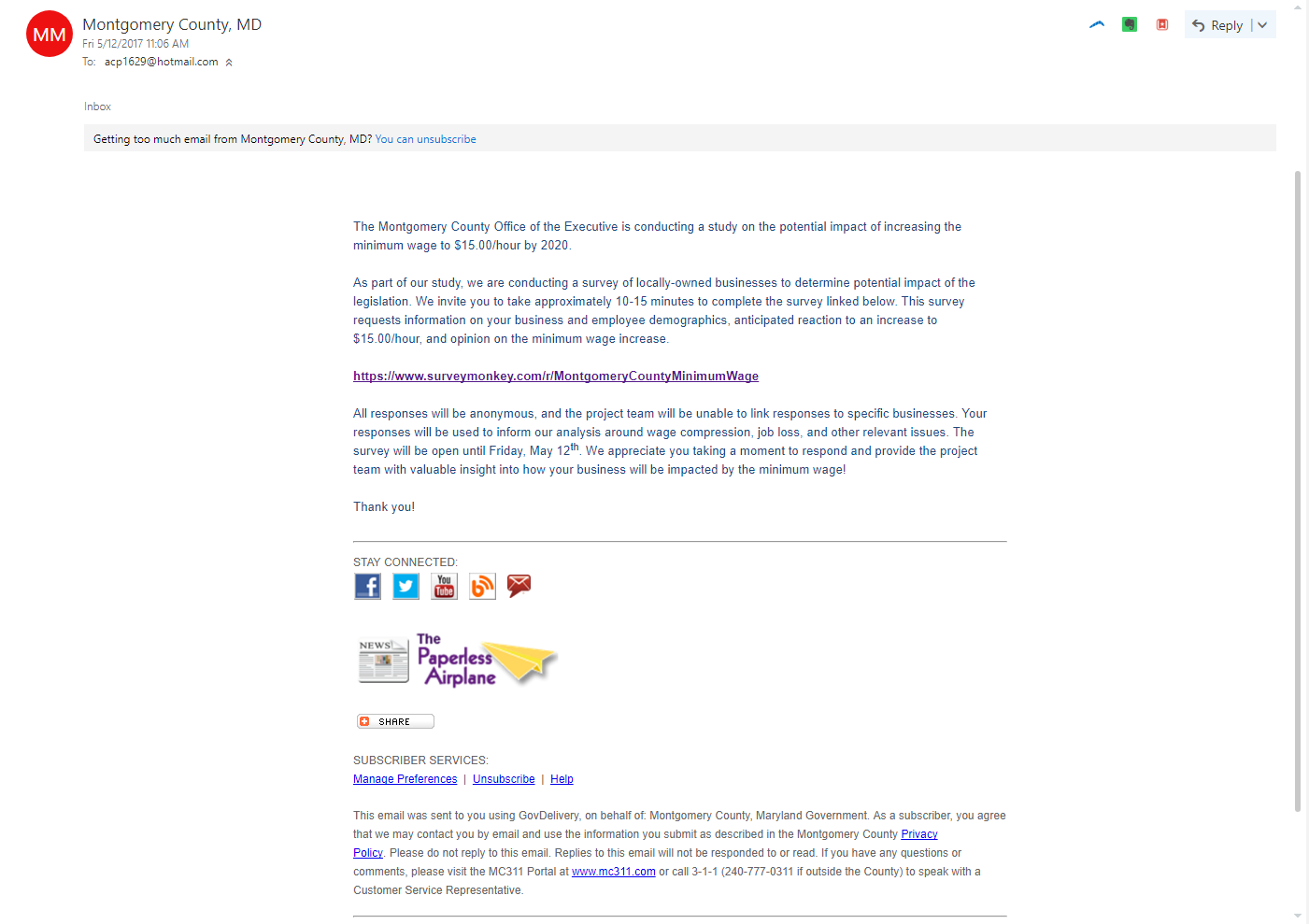By Adam Pagnucco.
The Executive Branch has released its long-awaited study of the impact of MoCo’s $15 minimum wage bill and it is taking fire. The primary objection from bill supporters is that much of the study, including the assumptions for its economic modeling, is based on an unscientific, self-selected sample of business owners who were asked to predict what they would do if the minimum wage were raised. A senior economic analyst with the Economic Policy Institute labeled it “absurd junk science” and wrote:
The closest analogy I can think of would be if the FDA was considering approval of a new drug and instead of reviewing any studies or trials, they instead simply asked the drug company “what percentage of patients do you think this drug will harm versus help?”
Your author agrees with these criticisms. Want to know why? Because your author was asked to fill out the minimum wage survey!
On May 12, the county sent me the email below asking for participation in the minimum wage survey. Note that the email says, “All responses will be anonymous, and the project team will be unable to link responses to specific businesses. Your responses will be used to inform our analysis around wage compression, job loss, and other relevant issues.”
Now, I am self-employed, but I do not own an incorporated business or employ other people. Just out of curiosity, I clicked on the Survey Monkey link right after receiving the email. Yes, the link worked and the survey was ready to accept responses. If I had filled it out (and I didn’t!), by its own admission above, the survey administrator would have had no way to filter out my responses or flag them as fraudulent.
Lord knows who else got the email and exactly who filled out the survey!
Your author does not express an opinion on the policy merits of the $15 minimum wage bill. That’s a topic for a future post. But the minimum wage business survey is a different matter. It was obviously subject to self-selection bias and even potential manipulation. The fact that it was administered in flagrant violation of all known scientific surveying techniques disqualifies it from being used as a tool to evaluate public policy.

